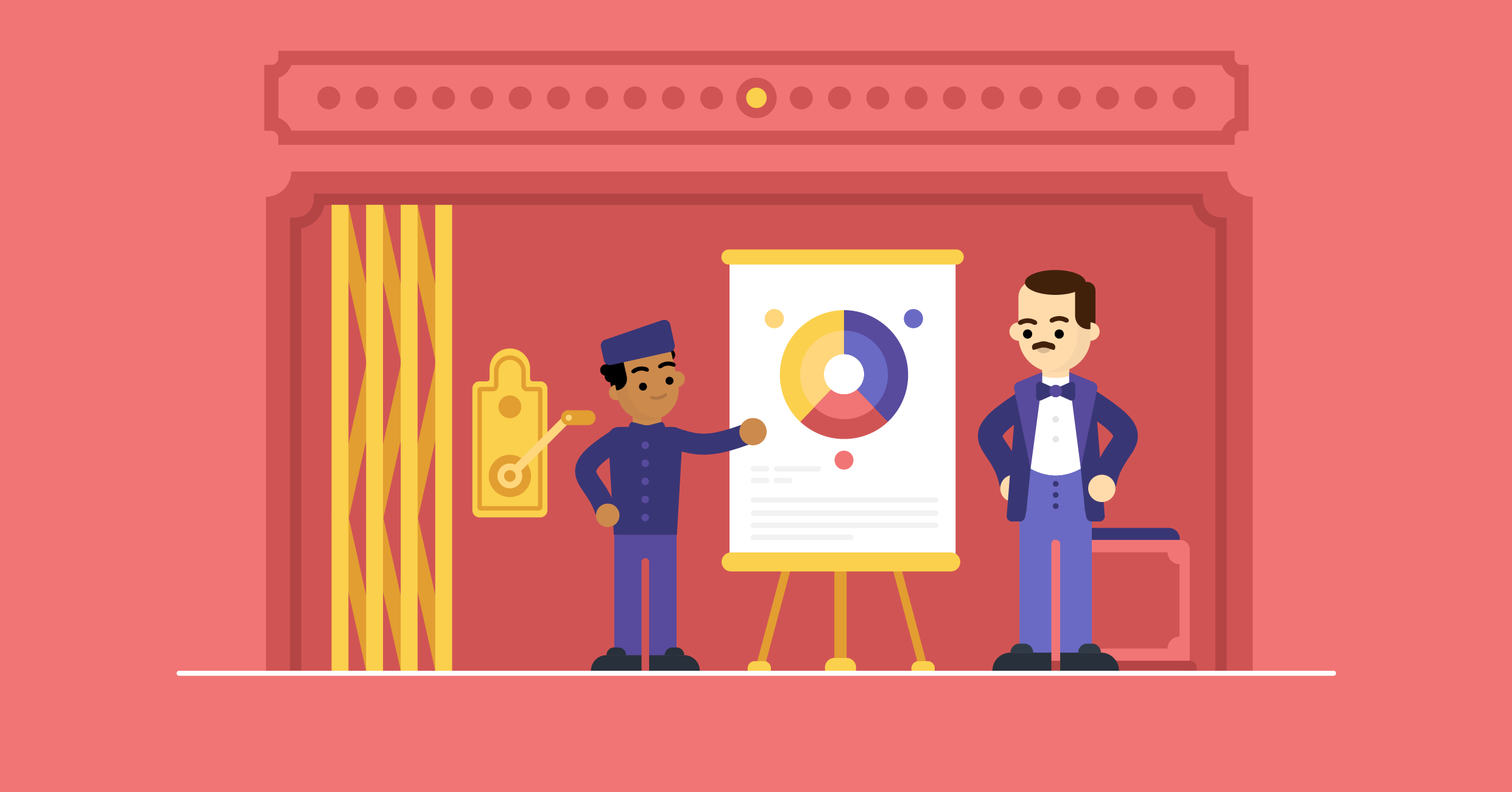How to Find a Job in Australia - The No-Nonsense Guide for 2026
Updated on 02/24/2026

OK, real talk.
It’s hardly heaps of fun out there in jobs land right now.
Many of you legends have either lost jobs, had hours reduced, or become a bit wobbly about your prospects of hanging on to the work you already have.
That’s why we want to pitch in with some expert-sourced advice from people who are out there working with Aussie job-seekers and employers right now.
In this article, we’re going to break down the job-searching process as simply as we can.
Here’s what that will involve:
- How To Search For Jobs In Australia
- Make Your CV Shine
- Network, Network, Network!
- Why You Should Build Up Your Brand Online
- How To Prepare For an Interview in Australia
- 7 Interview Questions [New in COVID Times]
How to Search for Jobs in Australia
Let’s start at the start: the search.
“Have a holistic approach to your job search,” advises Paul Di Michiel, of the Career Medic, and author of Hired to Fired, The Guide to Effective Job Search for the Over 40.
“Networking is key and should logically cover 70 percent of your time while searching, but you need to include applying for suitable jobs on a range of job boards, as well as engaging reputable recruiters to partner with you in that job search.”
Michael Berger, director of Brisbane-based recruitment firm, Talent Blueprint, suggests job-seekers break their search down into these three steps:
- Do your homework and research target clients that you want to work for. Make a hit list!
- Approach your known contacts in those businesses and also unknown senior people within these businesses. Tell them you are looking for work.
- Remain flexible to the type of work you would accept. Businesses crave flexibility at the moment, being open will only hold you in good stead.
The Top 10 Websites For Finding Australian Jobs
And if you want to know where to search online, here’s our pick of the top 10 places to do:
- Seek
- CareerOne
- GlassDoor
- EthicalJobs
- Mumbrella
- FlexCareers
- GradCareers
- Gumtree
- Indeed
If You’re a Graduate, Stay Positive
“Stay positive, there is work available,” Graham Wynn of Superior People Recruitment tells graduate job-seekers.
“Attitude and enthusiasm — especially at the interview stage — are proving to be a real benefit for recruiters. It is very competitive for graduates, as many have little or no relevant experience so their attitude and enthusiasm will carry extra weight in the mind of recruiters.”
Still, many graduates that Superior People Recruitment sees waste time applying for positions above their level of experience. When they are knocked back, this can cause frustration at so many rejections.
“So make sure the roles you apply for suit your experience and qualifications,” says Graham.
Show ‘Street Smarts’ to Find Expat Jobs
Of course, when you don’t know the lie of the land things can be a bit harder. That’s especially true if you’ve recently arrived in Australia as a working holidaymaker, or have been here a while but are now looking to secure a four-year sponsorship visa, or even permanent residency.
“Any new arrival into any country must first learn the ‘new rules of the game’ in that location,” says Jon Michail, Group CEO of Image Group International, which helps individuals and companies with branding and reputation management. “This includes the street-smarts that are not easily available through official sources. Understanding these ‘unwritten’ rules can save a migrant five to 10 years in lost opportunities,” he says.
“An expat with a well-crafted authentic personal brand positioning can stand out because a local in a similar position may have become too comfortable and complacent in their current role,” adds Jon.
Make Your CV shine
If you want to perfect your CV, you have to make sure every little detail is polished to perfection. Once you do that though, believe us — it’s going to be worth it.
After all, that’s a small price to pay for landing the dream job you’ll be looking forward to.
By building a near-perfect CV, you’re essentially investing in yourself, and your future.
We’ve published a detailed guide on writing your CV in 2022 here — you should definitely check it out.
“While LinkedIn let’s people get a taste for who you are and what you can do, the CV and cover letter tell them exactly what you have done and what you can do for them,” says Michael Berger, director of Brisbane-based recruitment firm, Talent Blueprint.
Remember it's not a 10-page boring document, make it targeted, appealing and easy to read. The CV is designed to get you to an interview. That’s then the forum to dig even deeper.
CV Tips For Mid-career Professionals
“The resume is the cornerstone of an effective job search,” said Paul, of the Career Medic. “If you get this document right, then all other elements and aspects of job search are easier. It’s critical that the résumé include quantifiable achievements, which are specific examples of good things you’ve done in each role. They demonstrate your skills as well as the value you have added in previous roles, and of course, could replicate in future roles.”
He added: “Achievements should be presented in the ‘action and result’ structure, or ‘what did you do and how did it turn out?’. Achievements are the ‘gold nuggets’ of an effective resume, but unfortunately are regularly omitted from resumes, poorly written or hidden among responsibilities or tasks.”
CV Tips For Aussie Graduates
And this may seem obvious.
But make sure you’ve got no spelling or grammar errors on your resumes and cover letters. “This can be an immediate rejection by recruiters,” says Graham Wynn, of Superior People Recruitment. “Also be careful when using templates. I regularly receive a cover letter addressed to ‘Dear Mary’ and this shows a lack of attention to detail.”
Network, Network, Network!
Yes, the pandemic has been a bit of a downer for networking. All those great coffee catch-ups and post-work beers, have gone by the wayside. But people shouldn't give up entirely on meeting people in person.
“Given the rise of COVID and a faltering economy, today the most important thing that you can do is start to build your networks as early as possible, says Ineke McMahon, a career strategist, executive recruiter and co-founder of the Path to Promotion, online learning and development academy.
Ineke also suggests you:
- immerse yourself in the industry you want to be in
- attend events (even if they are virtual), and
- follow up with people to promote yourself as a future hire.
“These approaches help you develop a reputation for being honest, reliable and passionate,” she says.
Apart from larger gatherings and stricter pandemic restrictions in Victoria, it's ‘business as normal’ for networking, says Talent Blueprint’s Michael Berger. “Don’t let COVID be an excuse for not catching up with people. Be more targeted with your networking, this can be a positive thing. And use social media where possible.”
When it comes to social media, Paul at the Career Medic says LinkedIn can help you see how you are connected or linked to various organizations. If you have a first-degree connection, then you have a direct path into an organization, he says.
“If you don’t have a first-degree connection, but have a second-degree connection, that means even though you don’t know that person, you know someone or several people in common. On this basis — and if the relationship with your first-degree connection is valid — you can be introduced,” he said.
Build Your Brand
In fact, Australian government data recently showed just one percent of vacancies were advertised on social media in 2012-2013, but that this figure has jumped to 14 percent between 2018 and 2019.
Paul advises mid-career professionals that if you are not online at LinkedIn, there’s a risk of being overlooked by some recruiters and employers. This is particularly true for professionals over 40, he says. “It’s important your LinkedIn profile is as complete and detailed as you can make it and that you have strategically constructed it to convey your brand and value,” he says.
Michael Berger, director of Brisbane-based recruitment firm, Talent Blueprint, also stresses the importance of getting your LinkedIn profile right. “This is available for viewing 24-hours-a-day to anyone searching. If this is looking untidy and not up-to-date, you are looking untidy and not up-to-date. There are a thousand guides online about how to have a good profile. Follow these,” he says.
Ensure you have some activity on the homepage of LinkedIn too, which not only allows you to be picked up more effectively in keyword searches but also gives you visibility among your connections. That’s the advice of Paul Di Michiel — because every time you post, you appear on connections’ homepage.
Senior professionals in the middle of a career transition should be constantly investing in their personal leadership growth too, says Jon Michail, Group CEO of Image Group International.
“Personal Branding is your passport to new opportunities and an insurance policy for any hard times that are part of the business cycle,” he says. “Corporations spend billions of dollars on branding. Why? Because it works. It’s similar for leaders, managers and changemakers — by investing in your self-promotion, with authentic personal branding, you are staking the odds in your favor.”
Graduates Can Stand From The Crowd Out Online
Graduates need to be prepared to look beyond their academic records and skills too, says Jon. And how graduates position themselves from day one can make a huge difference in landing a hard-to-get opportunity.
“Your qualifications are great, but not so unique when you’re competing with others with similar qualifications. Authentic personal branding and your LinkedIn profile are first steps in your outreach efforts. Treat it initially as your personal website, telling your unique story to the professional world,” he says.
But Be Careful With Social Media
Should you approach social media differently if you’re a graduate or young expat? No matter what stage you’re at in your career, you need to take extra care about what you post across social media, advises Graham Wynn of Superior People Recruitment.
“Most employers and recruiters use social media as a way of pre-screening candidates. So if you have anything on there that may be detrimental to your job application, then keep your pages private,” he says. “If they are kept as public, then anyone can see your posts and images. I’ve known candidates to be rejected by employers, because of posts on their social media pages.”
How To Prepare For A Job Interview In Australia
But what about when you’ve actually nabbed an interview?
“Preparation is a key element of a successful job interview,” says Ineke, at Path to Promotion. “Spending time preparing for questions will be important. Employers will want to see evidence of resilience, planning, ability to adapt to change and learn new skills.”
Ineke says interviewees also need to show their subject matter expertise, since it contributes to being able to work independently. “You need to show you have good research and problem-solving skills and the ability to find your own answers, if you aren't sitting in a work environment where you can ask someone next to you.”
It also pays to know your CV/resume inside and out.
Be prepared to explain its contents. This is your story!
“Prepare a succinct response to the perennial starting question in the interview: ‘Tell me about yourself?”, said Paul.
This is a great opportunity to establish a strong first impression and can set the tone for an effective interview. Similarly, it’s important that you go through the job advertisement or job description and prepare examples or stories against the key requirements of the job.
For example, if the organisation is looking for someone with strong problem-solving skills, you logically should be preparing several examples you have demonstrated this skill.
Finally, it’s important to prepare and ask intelligent and relevant questions during the interview. All too often when interviewees are asked if they have any questions, they’ll either respond by saying, ‘No, it’s all good’, or even worse, making up a throwaway question on the spot.
7 Interview Questions From The Covid Era
The COVID era has changed the way we work — and it’s changing the interview too, says Ineke. Many Australian companies now also want to know how hires are adapting. The most asked question of all time — ’tell me about yourself’ — is morphing, too.
She suggests you also prepare answer to pandemic-related and remote working questions such as:
- What have you learned about yourself during the pandemic?
- Can you do the job while working from home?
- How do you ensure you’re productive while working from home?
- Are you willing to eventually work from an office?
- How have you been spending your time?
- What investments have you made in your development?
- How did you stay connected?
Attitude, enthusiasm and professionalism will go a long way for graduates in particular, suggests Graham Wynn of Superior People Recruitment. And solid research can make a huge difference too. “Understand as much as you can about the company. Not just using Google, but also Linkedin — as the employers put regular posts on their Linkedin company profiles.”
You’ve Got This: From A Great Job To A Great Career
Ineke says her best tip to anyone wanting to launch a successful career is to continually invest in your own development.
“Build a strong relationship with your hiring manager and clearly define what success looks like in your role, with specific mapped out goals to achieve. Regularly seek feedback on how you are progressing and ask for advice on how you can improve. Frequently asking for feedback and seeking constructive criticism — and making sure that you apply the advice — will see you shoot ahead of your peers, says Ineke.



